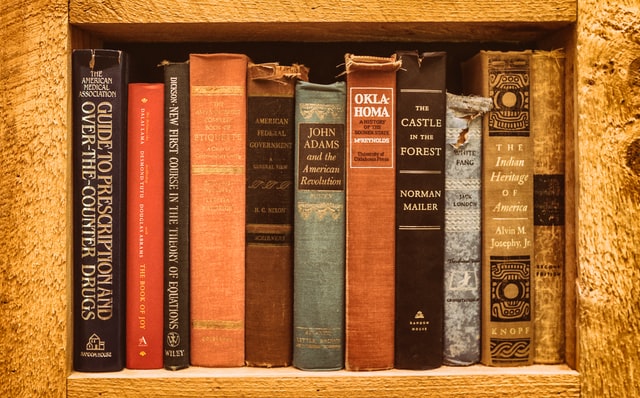We are living in strange times.
Emerson viewed history as the biography of one man. He said, “All history becomes subjective; in other words there is properly no history, only biography.” In some ways, this is a helpful analogy. We’re all the same; just people navigating a fragile sliver of time called life. We are all learning in order to build a better future. Ancient Greeks, medieval Asians, modern Americans, post-colonial islanders, any and everywhere between; we all have the same basic desires, fears, and failings. We all want our children to experience a better, more hopeful future. We all want to be judged by the content of our character. We want to live in safety. We are all tempted to think more of our desires and accomplishment and less of others. We take the easy route when it presents itself. We build upon the work of those before us.
I aim to write about topics which have stood the test of time; ideas which will still be true and noble and applicable in a month or ten years from now. The long view of history is the only way to form an accurate understanding of the current moment. Every event taking place today is a culmination of years – centuries, in some cases – of decisions, habits, and customs. History is the story of how we arrived here.
Human society has always been messy and imperfect. Reading about the horrors of war, the wacky medical theories entertained over the years, and the dramatic shifts in government illustrate this fact.
This past few weeks have been heavy. Here in the States, generations of pain have been laid out for the world to see. The sins of the past, the large and more subtle ways dignity has been denied to ethnicities and demographics; all of these have left wounds. We can only begin to heal by listening and acknowledging the truth. The only way to make forward progress is to understand that the history of the United States, as well as many other countries, is much darker and more complicated than most of us know or would admit.
We’ve seen pandemics. We’ve seen political tensions. None of this is new, as upsetting as these events are.
When we call out the truth, when we name the problem, it becomes less insurmountable.
If today feels too heavy, look to the past. Look at the problems we’ve solved in the years gone by and find the lessons of history. Name the lessons learned and act on them.
We read history to learn the difficult lessons of ego, destruction, and failure without having to experience them firsthand. We read history so we don’t have to make our own mistakes.
Similarly, there is not enough time for us to learn every lesson firsthand, even if we wanted to. We can’t possibly experience every perspective or idea in existence. This is why we read widely; to understand those different from us; to see how they view, live, and move through the world. We read history and perspectives from all sorts of people, from all times and places, to challenge ourselves and grow.
Whether we are learning the dangers of the ego from Marcus Aurelius or about discriminatory housing policies in America in the early 1900’s, the mistakes of the past are there for anyone willing to look. Let us not be so afraid of the past that we ignore our own failures. Let us boldly study the mistakes of the past so we can identify the root of the problem and declare we will never make those mistakes again. Good deeds will never undo the mistakes of the past. However, if we act wisely, we can prevent inflicting the harm of those past mistakes on future generations.
We can only learn from past failures by putting forth the effort to read, learn the lessons, and act on them today.
As Frasier Crane noted, “It may be an unwise man who doesn’t learn from his own mistakes, but it’s an absolute idiot that doesn’t learn from other people’s.”
History itself acts as a record of progress. For all the strange and unnerving events taking place today, the twenty-first century is still the safest, most desirable time to be alive. More people are living longer and healthier lives in more places than at any other point in history. In ten years, that will be even more true. Science and technology continue to find ways to make life longer, healthier, and more enjoyable. This isn’t a reason to stop progressing and making life of as high a quality for the most people as possible. Rather, it is the context for understanding our past and present and for making decisions about the future, though. Life is better today because we are willing to learn lessons from the past. Science and technology, like all of human history, compound over time. We reap the benefits of those who lived before us. In order to continue moving forward, though, we must keep learning from the instances we have failed.
Cognitive psychologist Steven Pinker is a famously optimistic humanist. In 2018 book, Enlightenment Now, Pinker observes that, “As we care about more of humanity, we’re apt to mistake the harms around us for signs of how low the world has sunk rather than how high our standards have risen.”
We are learning. Thank goodness, we are getting better. The record of history shows that we do care more about humanity and we do work to improve life for everyone, present and future alike. Our work is not done. Let history inspire you to continue learning and moving forward. Allow the examples of brave individuals, courageous women, and heroic men to spark ideas and change.
We don’t read history to be able to make interesting dinner conversation. We read history to make sense of our fellow humans; to make sense of what we’d like our future to be; to inform our decisions. We identify patterns and short-comings of the people before us so we don’t have to fail in the same ways.
History has plenty to teach us, but we have to make the effort to learn.




